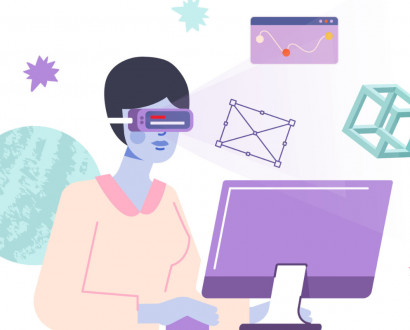This time it’s personal: how to harness the power of your unique brand

No matter what you think of Elon Musk, the point is that you think of him. He has cultivated a personal brand that has made him the face of not only his own companies, but entire industries.
Electric cars. Private space travel. Even the letter X – all are synonymous with Musk. This is the power of investing in your own brand, the most valuable asset an executive can yield.
"We all have a personal brand. It’s not a matter of whether we have one or not. We all have one just by showing up. But the difference is, some people are winging it and some people are making really conscious, deliberate decisions about it," personal brand strategist Colette Werden explains to The CEO Magazine.
"These days, if an executive wants to do things like attract top tier talent, expand their network and build a loyal consumer base that trusts in their thoughts and opinions, then conscious personal branding is an absolute non-negotiable."
Personal brand economy
This, business and mindset coach Suz Chadwick explains, is because we are living in a personal brand economy – whereby consumers’ decisions are being guided by connection to the brand and the people who represent it.
"Years ago it was about the business brand, it was all about whether it was Nike or Google or even Instagram. Now we know Mark Zuckerberg, we know Elon Musk or Jeff Bezos," Chadwick says. "We’re in an economy where we actually want to know about who the people are behind the brand, and it influences our buying decisions."
While beneficial for an executive’s current company, having a cultivated personal brand in your back pocket also allows you to transcend your current role. It gives you an AMEX Black in a world of debit cards, opening doors and giving you ultimate purchasing power in this new economy.

"Content is currency. The more I see you, the more I trust you, the more I like you. If you are my vibe, the more I then want to find out about what you do, what you sell, more about your business." – Suz Chadwick
And what are you using to stock up your accounts? Chadwick has a simple answer.
"Content is currency. The more I see you, the more I trust you, the more I like you. If you are my vibe, the more I then want to find out about what you do, what you sell, more about your business," she says.
But while there are numerous benefits to cultivating an effective personal brand as an executive or entrepreneur, the process to do so can be time-consuming and may require skills you do not already possess.
As with many other business processes, this is where AI can play a role.
The AI advantage
There are multiple steps that go into brand creation, whether it’s for an individual or a company. From the message you want to convey, the audience you want to reach or the tone you want to implement, creating a brand takes time and skill.
AI has the capability to make these processes more accessible and streamline content creation – from copy generation to social media scheduling, creating a consistent brand that reaches your audience has never been easier.
"AI in branding is all about helping. Helping to generate ideas, helping you to create copy. It could be rewriting a sales page, it could be coming up with 12 months’ worth of content for your social media. It could be writing sales emails," Chadwick says.
"Where you might have had a content manager before or somebody who would manually be doing all of this for you, if you use AI well, you can put in what you need and it will spit out pretty quickly."
Now, if using AI is starting to sound a bit counterproductive for creating a brand that is actually personal to you – that will communicate your voice and the message you want to convey – you’re not entirely wrong.
Using AI to create content without being mindful of your own voice, and without a quality control process in place, will leave you with a brand that is dull, generic and at the end of the day, powerless in this new economy.
Luckily, both Werden and Chadwick believe this is a hill that is easily overcome.
Now it’s personal
The first step for the brandless is to research options or work with someone that can help steer you towards what will work best for you.
"A lot of times clients just feel overwhelmed. They don’t know where to look," Chadwick says.
"It’s about staying up-to-date and narrowing your focus to what you need right now, because it’s a big market and you can get lost in it. We help our clients by curating the best tools for them."
At the moment, AI is one of the sharpest in the shed. While it may not be able to solve every personal branding dilemma, Werden says it’s a great way to easily generate content.
"You need to have an inside-outside approach, you need to actually come back to center and ask the really important questions: Who am I? What are my values? What am I here to share? What is my idea of success?" – Colette Werden
"It can help break through the writer’s block, it can help with content management, SEO and data analysis on consumer trends and things like that," she says.
"What AI cannot do is humanize the experience."
And this is the essential ingredient in personal branding. It’s crucial not to lose the sense of ‘you’ in the content being broadcast to your audience, but first you must determine who ‘you’ are.
"With so many things vying for our attention online, we often gravitate towards trust and transparency," Werden says. "You need to have an inside-outside approach, you need to actually come back to center and ask the really important questions: Who am I? What are my values? What am I here to share? What is my idea of success?"
The answers to these questions help define the voice that AI can then be used to amplify. Done correctly, that voice can rise above the others to become an authority on your industry.
"In a world of thought leaders, there are millions of people who do what you do," Werden says. "The key is having the conviction to know that nobody does it like you do."
Systems spotlight
Considering implementing a new AI system into your branding strategy? Whether it be for project management or copywriting, here are a few to check out:
- Brandfolder: Empowers non-creatives to generate customized content that is consistent, timely and looks good.
- Anyword: An AI writer that can be utilized for compelling copy creation across social media, blogs, websites, ads and more, in multiple languages.
- OpusClip: A generative AI video tool that can create 10 viral clips from one longer video, allowing speedier content creation for sharing online.
- Bard: Similar to ChatGPT, Google’s own AI chatbot pulls information from the web to answer questions and help generate copy.
- Narrato: End-to-end AI content creation and planning assistant that can be your one-stop show for everything from content ideation to video script outlines.